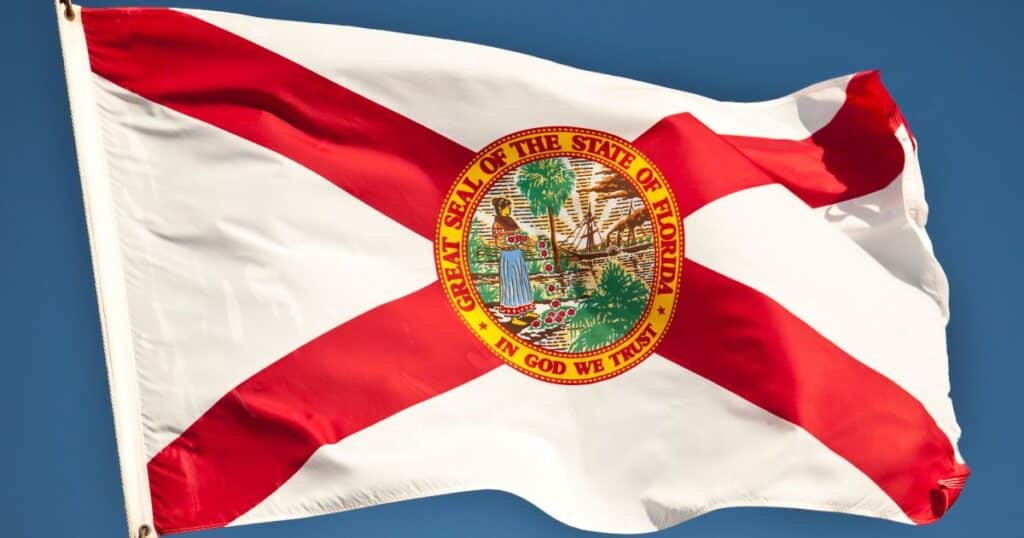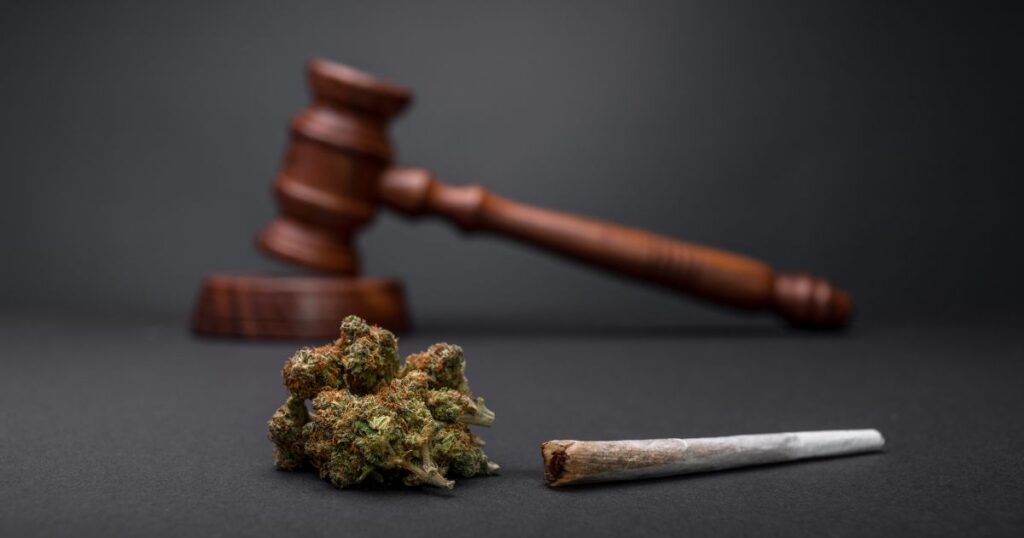The Sunshine State has found itself in a unique tangle between progressive steps toward cannabis reform and legislative proposals that have raised eyebrows among enthusiasts and industry stakeholders in Florida.
With the possibility of adult-use cannabis legalization looming, Florida’s lawmakers have dared to propose strict potency caps on THC, the active ingredient in cannabis, in what appeared to be a move to regulate a product that isn’t even legal yet. This has sparked debate about the role of preemptive regulation and the potential ramifications for consumers and the cannabis industry in the state as a whole if these were to pass.
Thankfully, it appears that these controversial measures, HB 1269 and its Senate companion SB 7050, have seemingly stalled for the current legislative session, as acknowledged by one of the bill’s sponsors.

Prohibition Before Legalization
The story begins with two bills, House Bill 1269 and Senate Bill 7050, which aimed to limit the THC potency in adult-use marijuana products even before the voters had the chance to decide on adult-use legalization.
The bills stipulated that if recreational marijuana were to be approved, the THC content in smokable forms would be capped at 30%, with edibles limited to 200 milligrams per package and 10 milligrams per serving. Other concentrates and infused products would be restricted to 60% THC.
This proposal was met with a mix of disbelief and outrage, as it not only predated the potential legal changes but also seemed excessive and arbitrary. The bill’s fate was sealed not by a vote in the legislature but by the ticking clock of time constraints; It will fail to meet the time constraints to make it on the ballot for November.
“I am confident in the quality of our product,” said HB 1269 sponsor Rep. Ralph Massullo (R) in a text to Politico. He also expressed his desire for the legislature to consider comparable policies if voters support a legalization initiative currently being reviewed by the state Supreme Court for potential ballot inclusion in November.
The intent behind the THC cap proposal was seemingly by the bill text to ensure public health and limit the potency of intoxicating substances. Yet, many viewed it as an overreach and an attempt to micromanage a market that could effectively regulate itself.
The question lingers—was this a prudent legislative measure to prevent public harm or an attempt to control a growing industry that could benefit from broader opportunities for innovation and growth?
The Current Legal Landscape
While the THC cap bill failed to take root, the broader fight over cannabis in Florida continues. The fate of a constitutional amendment for the Adult Personal Use of Marijuana by Smart & Safe Florida is in limbo as it awaits the decision of the state’s Supreme Court.
Governor Ron DeSantis has expressed confidence that the court will allow the measure to appear on the ballot, despite opposition from the likes of Attorney General Ashley Moody.
With the THC cap bills effectively snuffed out for this legislative session, the focus now shifts to the potential for recreational marijuana legalization and the role of the ballot box in shaping Florida’s cannabis future.
At Beard Bros, we have a special interest in the Florida cannabis industry as we have lived there for a significant part of our lives. As such, we like to follow the unfolding cannabis legislation narrative in Florida closely.
A key focus we consistently emphasize is that Florida residents and cannabis advocates who will be voting in the upcoming ballot should be aware that the Smart & Safe Florida adult use legislation bill is backed by Trulieve, the largest medical marijuana provider in the state.
This noteworthy sponsorship, especially given the current proposal’s exclusions like personal cannabis home cultivation, social equity considerations, and cannabis expungement initiatives, has garnered attention.
As currently drafted, it permits only “Medical Marijuana Treatment Centers and other licensed entities” to sell cannabis to adults, potentially excluding new licenses for an adult-use market. This raises concerns that these exclusions could pave the way for a monopolistic environment controlled by established corporations — a concern underscored by Trulieve’s substantial $40 million contribution to the campaign.

At the end of the day, we are glad that the overly restrictive bills HB 1269 and SB7050 have failed to progress further up the legislative ladder. With the recent nod from Gov. DeSantis, we are optimistic that the adult-use bill could advance beyond the Supreme Court and onto the ballot in November. It appears that it will be up to the will of the people of Florida to decide whether adult-use marijuana will come to the state.

















